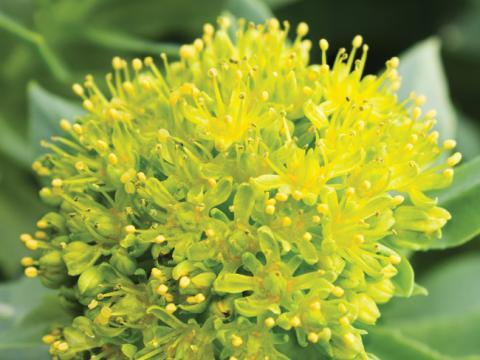Ancestral use
Astragalus is a very large genus comprising more than 2,000 species. The main species are Astragalus membranaceus and Astragalus mongholicus. Astragalus has been used in Chinese medicine for hundreds of years as a tonic and to strengthen immune system functioning1-2.
Botanical details
Astragalus is a hardy plant that is native to northern and eastern China. It is found on shorelines and in estuaries and pine forests and grows to a height of between 60 and 150 cm. Its flowers are yellow and form clusters. Traditional medicine uses the roots of the plant.

Properties
Astragalus has immunostimulant, antiviral and anti-inflammatory properties. Several compounds present in the root of the astragalus plant have been found to strengthen and stimulate the activity of the immune system4-8. The constituent compounds of astragalus have antioxidant properties which have a beneficial effect on ageing9,10. Astragalus is particularly recommended for vulnerable adults (with chronic diseases) and for older adults.
Indications
- Immunosuppression evidenced by recurrent infections (Cytomegalovirus, herpes, etc.)
- Senescence (ageing)
- Support for metabolic syndromes
- Respiratory allergies
Possible combinations
Astragalus + cypress: Strengthening the immune system and antifibrosis

Astragalus + liquorice: Antibacterial and antiviral action on the hepato-digestive and respiratory systems

Astragalus + ginseng: Improved resistance to fatigue and to intense/high energy exercise during periods of recovery (after an infection or surgery)

Precautions
Due to its effects on the immune system, this plant must be used with care (under supervision) by anyone taking an immunosuppressive therapy3.
Due to insufficient data, the use of Astragalus mongholicus is not recommended for pregnant and breast-feeding women3, 4.






